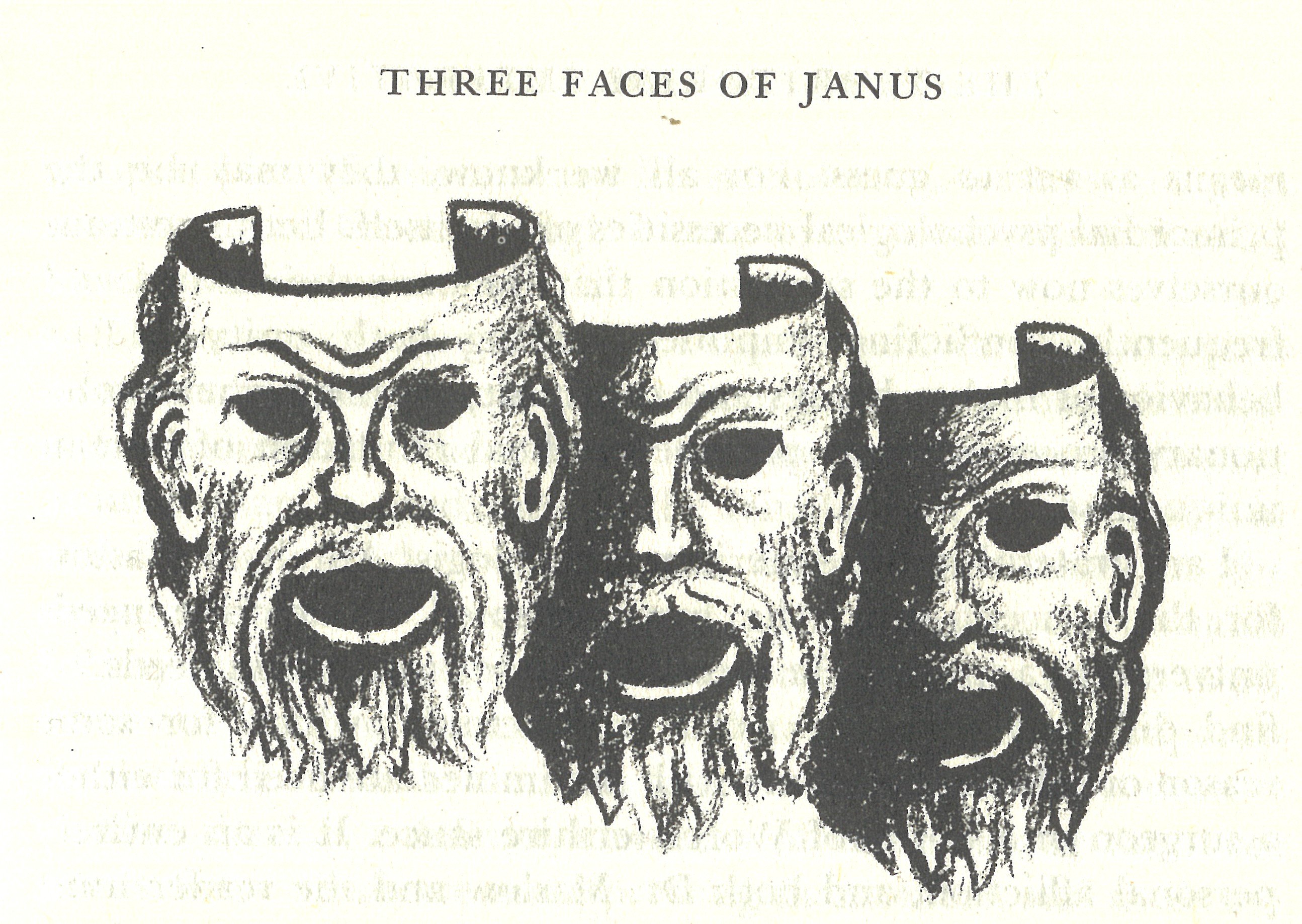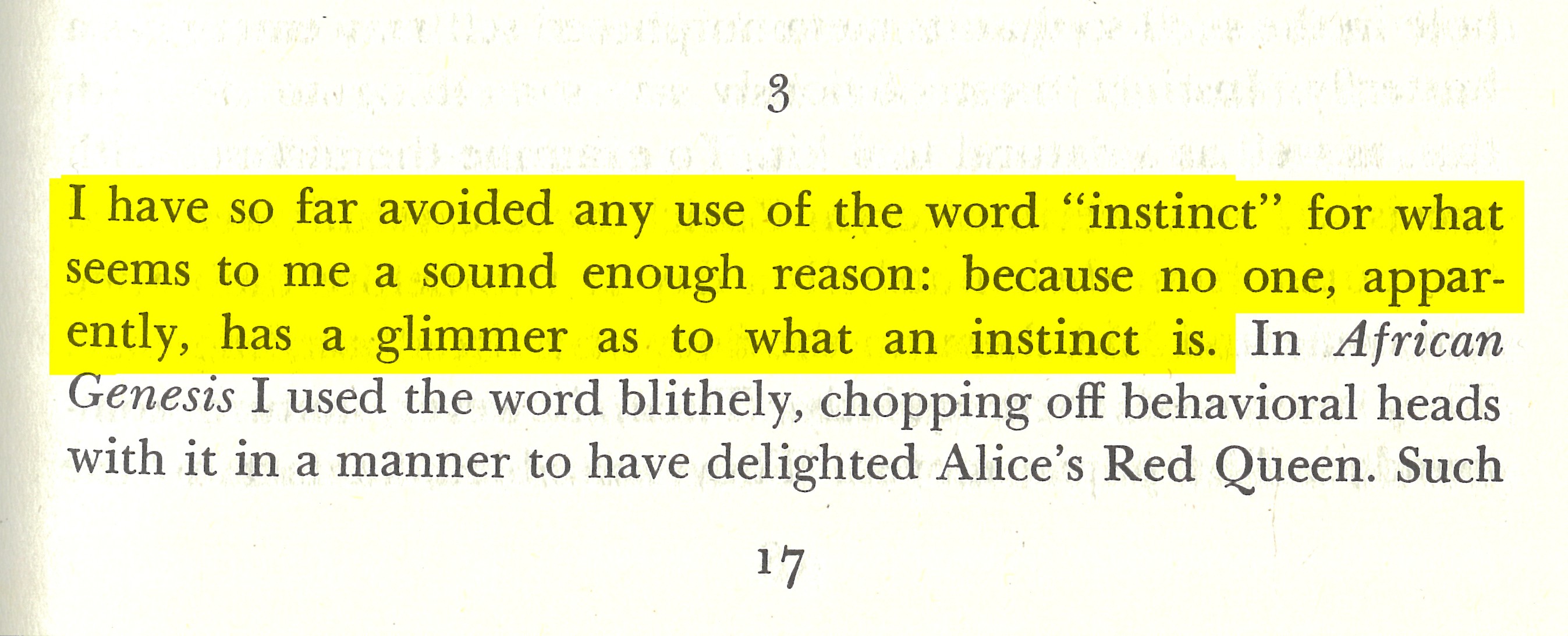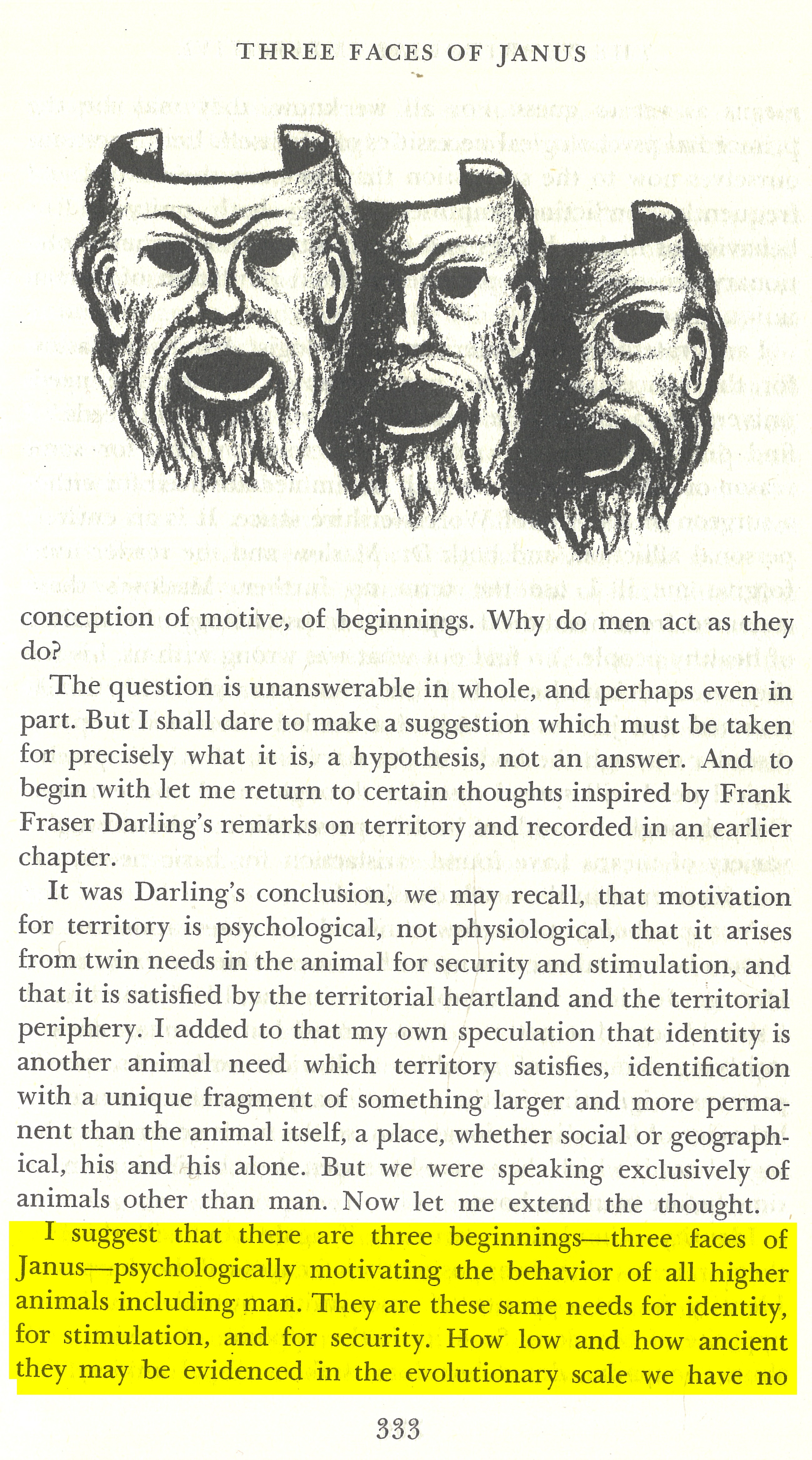
Robert Ardrey's The Territorial Imperative
In reshelving books on their shelves recently, with the two bookshelves themselves only returned to their place in the living room after we replaced the flooring, my eye lingered on a book cover. I did not recognise it, but it was familiar in the way one's infancy can return feelings. The book as then both unknown and known at the same time. That cover… there was something about it.

Opening it up I saw it had my grandparent’s 1970s Revesby (the address written in block letters on the front free endpaper). Oh, I said aloud.
Hardcover, Robert Ardey's The Territorial Impulse… 1967. Published when I was two.
I sat down to read the book. My mother has told me they read, my grandmother in particular. My grandfather Bert in his non-verbal ways was often regarded as a bit of a extreme grew-up-in-the-depression leftist.
They read widely.
So I was still surprised on reading Ardrey that they had his book. First British edition. After finishing and researching the book I was even more surprised. The author is one of the main originators of the 'Man the hunter' thesis in evolution. Supporter of the Vietnam war and so a classic market liberal.
But then it is always best to read widely. Reading is learning and mistakes 'help you learn'. If you triage your reading habits too early, then some sort of learning pathology is likely.
I reckon if I had recognised the author as a ‘man the hunter’ and this book was in a second hand bookshop, I might have passed over it. But here it was, handed down to me. My own parents were considering moving house and so it had come my way.
So to repeat the ‘man the hunter’ thesis that is of little interest to my project.
Hunting = meat = energy rich foods = bigger brains = intelligence= us.
At this point in the story there is a fork in the road. The other way will be about reading books that are not quite right but interesting none-the-less. I’ll write that one later, I’ll call it ‘guilty pleasures’ or something.
What I would have missed is that the book is replete with ornithological ethology, i.e bird behaviour, as well as a few early mammals. As well as notices that I think are very important.

Calling the instinct under discussion an imperative is an interesting choice I guess. I ended up at urge, I find drive too starship-py. Imperative, like it's a part of some commanding grammar. It's all a blur really.
In any case the (instinct/urge/drive) are at the every least a bias or two. Life is a set of preferences and they are in a compromised compostional stew-pot of trade-offs.
So, here I acknowledge the territorial impulse as a ur-world, that begins in a feeling for home, the near-at-hand, what the body immediately figures in, or against, when it separates from the substance of the terrain. But more of this in later posts.

(Above) the next thing of interest is the basic question of how 'we' get to the humane qualities of humanity out of evolutionary struggle.
Ardrey talks through a lot of examples of the propensity of life to engage in squabbling with neighbours, asking why don’t they just avoid each other? Why bother with the bother?
Why are their homes so closely situated, what is it that grants a better chance of survival if they choose to spend energy maintaining borders in colonies? In leks, in nesting, or in primate hierarchies, where social position is a type of home. (sure it can be stimulating but why is this of survival value?).
I think the most useful term in this discussion is Ardrey’s mention of Jean-Jacques Petter's term of noyau as a label for a society of inward antgonism (page 168). On finishing the book I looked noyau or noyaux up in my Rom Harré & Roger Lamb edited 1986 Blackwell Dictionary of Ethology but there was nothing. This is even before I looked up who Robert Ardrey was.

And then!
The last chapter of the book is titled after my own favourite god, with an extra-face.
I found this most shocking part of my grandparents book in my home. Janus turned back to me.
For a moment I had also considered using a three-faced god, the Slavic Triglav and I have him used in a post called The (moral urge / world building urge) plex, but decided not too because we do the dance in the… —gap. The dance is not another face.
Otherwise, Ardrey’s identity maps to my selfing, and his security maps to my worlding. Calling what we do do as another face I think misses what we do, but I guess if the point of view (POV) of all this is from the outside, as an ethologist, then perhaps giving a face to the tripartite nature of these movements can make sense. I think it’s one face too many however when viewed from inside the POV.
Without going into an extensive comparative mapping and criticism of the figures Ardrey and I use (security/world|self/identity) and our use of Janus, I’ll just mention here that Mary Douglas’ Thought styles and their perceptionsof risk (vis-a-vis 'nature' or 'morality' i.e. worlding preceps we should as selfs) would be able to mesh with this concept of Petter's noyau, better than say a study of leks does with group selection.
Douglas, Mary. Thought Styles: Critical Essays on Good Taste. London: SAGE publications, 1996.
Harré, Rom, and Roger Lamb. The Dictionary of Ethology and Animal Learning. Oxford: Blackwell Reference, 1986. .
Robert Ardrey. The Territorial Imperative: A Personal Inquiry into Animal Origins of Property and Nations; Illustrated by Berdine Ardrey. London: Collins, 1967. .
